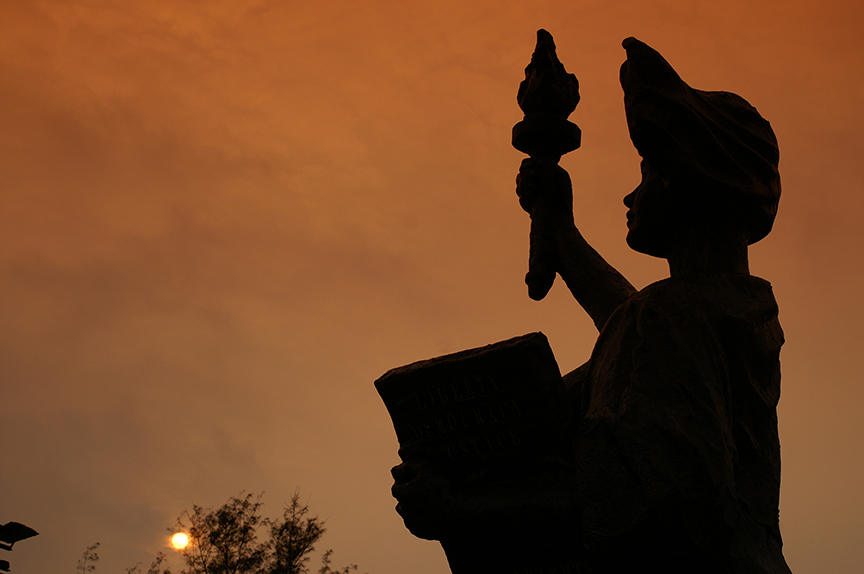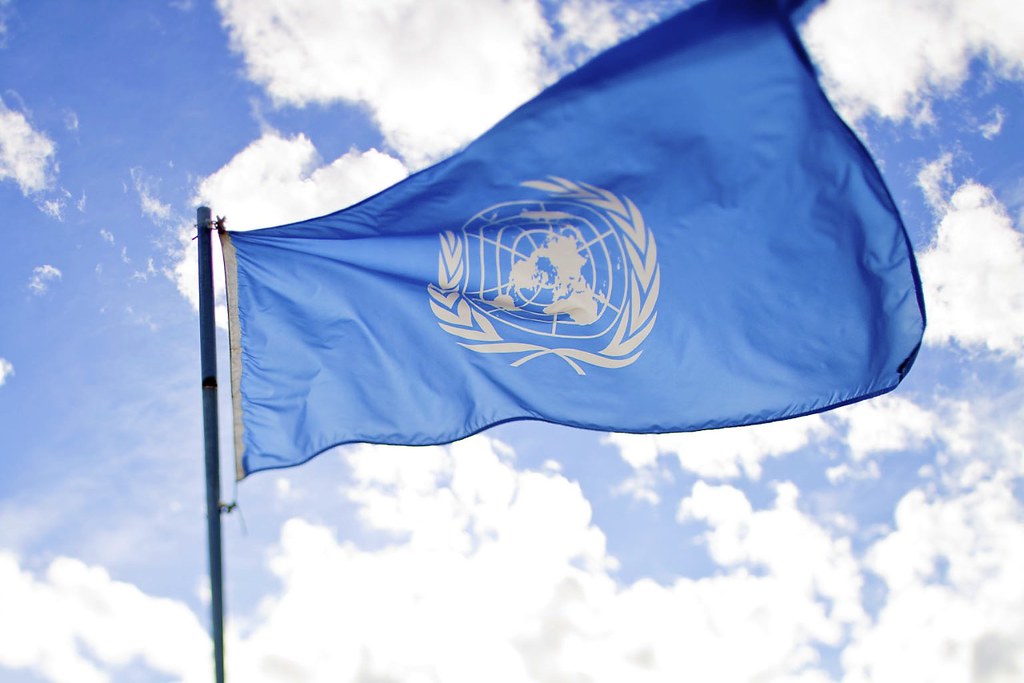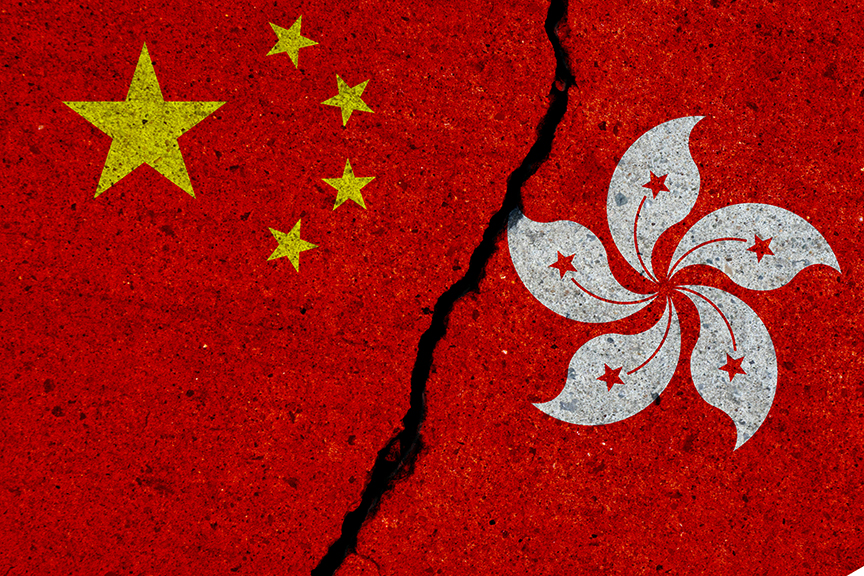China’s Virtual Victory at WHO, Real Crackdown in Hong Kong

PHOTO: Hong Kong’s Goddess of Democracy at sunset .. A 6.4-metre faux bronze statue sculpted by Chen Weiming, inspired by the original 10-metre tall papier-mâché statue erected by the Chinese pro-democracy movement in Tiananmen Square at the end of May 1989, and destroyed by soldiers clearing the protesters from Tiananmen square on June 4, 1989.

by John J. Metzler
Weirs Times Contributing Writer
The World Health Organization (WHO) held its annual Assembly with barely a mention of the member state which brought this UN agency so much political grief. But this year’s Assembly convened not in the alpine splendor of its Geneva headquarters, but in virtual reality of cyberspace owing to the ongoing COVOD-19 pandemic it has been accused of not reacting to early enough. As the world is now massively focused on the Corona pandemic, Beijing may probe in the disputed South China Sea and politically crackdown in places like Hong Kong.
Though the murky origins of the deadly COVID-19 virus have been traced to Wuhan China, the stark facts remain that WHO, either through misfeasance or malfeasance, did not react quickly enough to the warnings, or more probably was sidelined by its cosy ties to Beijing that vital health information was not shared in a timely manner.
WHO Director-General Dr. Tedros, has offered fulsome praise to China’s rulers, even as late as January 23rd of this year as the epidemic was already spreading widely. Moreover, he originally downplayed the dangers of human transmission.
Weeks of warning time were lost.
WHO only declared a pandemic on 11 March; this wasn’t a technicality but rather an overdue alarm. Once a pandemic was declared, only then did many European countries and the USA realize this was the real thing and act accordingly. We know the rest, we are suffering through it.
UN Secretary General Antonio Guterres warned the Assembly, “The COVID-19 pandemic has demonstrated our global fragility.”
U.S. Secretary of Health Alex Azar, addressing the Assembly stated candidly, “In an apparent attempt to conceal this outbreak, at least one member state made a mockery of their transparency obligations, with tremendous costs for the entire world. We saw that WHO failed at its core mission of information sharing and transparency.”
He added, “This cannot ever happen again. The status quo is intolerable. WHO must change, and it must become far more transparent and far more accountable.”
Significantly Secretary Azar added, “It is also critical that Taiwan participate as an observer at the WHO, to bring the helpful perspective regarding their effective and exemplary response.” Despite rising American, European and Japanese support for Taiwan’s participation, Beijing’s communists have predictably blocked Taipei’s inclusion in the WHO.
Taiwan, despite its proximity to Mainland China, has largely avoided serious contagion and disruption from COVID-19, owing to the democratic island’s exemplary public health network.
Now we come to Beijing’s mishandling of Hong Kong. Following the landmark agreement between Britain and China, the former Crown Colony reverted to Beijing’s control in 1997. The “One Country, Two Systems” deal guaranteed political rights and economic freedoms for 50 years for the city-state as a “Special Administrative Region” of China. I recall being in Hong Kong during those nervous but anxious times only to be told that the Chinese Communist Party (CCP) will never kill the golden goose that is Hong Kong. Who will then lay the golden eggs? True to a point.
Yet Hong Kong’s own pro-democracy movement is not going to lie down before Beijing’s steam roller Diktat, media crackdowns and bypass of the legislative process. A tough new security law promulgated by the People’s Republic would be a “death knell” for the prosperous financial hub, warned U.S. Secretary of State Mike Pompeo. Congress may impose trade sanctions.
Why the renewed Hong Kong tensions? As mentioned, the People’s Republic is probing the margins as the sensitive anniversary of the June 4, 1989 Tiananmen Square crackdown approaches. The Chinese communists, to use their phrase, may be willing to “teach Hong Kong a lesson.”
After all Hong Kong’s autonomy was always living on borrowed time, with its “guaranteed” rights and freedoms a chimera, restrained only by Beijing’s willingness to make money and avoid global censure for any crackdown. But in the light of the PRC’s tarnished reputation in the wake of the COVID-19 health crisis, the ruling communists may feel either less constrained or more emboldened. Chairman Xi Jinping’s hyper-nationalistic regime, facing its own Corona economic downdraft, may change the narrative through its time honored bullying.
Secretary Pompeo stressed, “Hong Kong has flourished as a bastion of liberty. The United States strongly urges Beijing to reconsider its disastrous proposal…We stand with the people of Hong Kong.” Most certainly, but the U.S. Congress should not treat the people of Hong Kong as just another PRC province but as the vibrant and freewheeling place it still is.
John J. Metzler is a United Nations correspondent covering diplomatic and defense issues. He is the author of Divided Dynamism The Diplomacy of Separated Nations: Germany, Korea, China.



